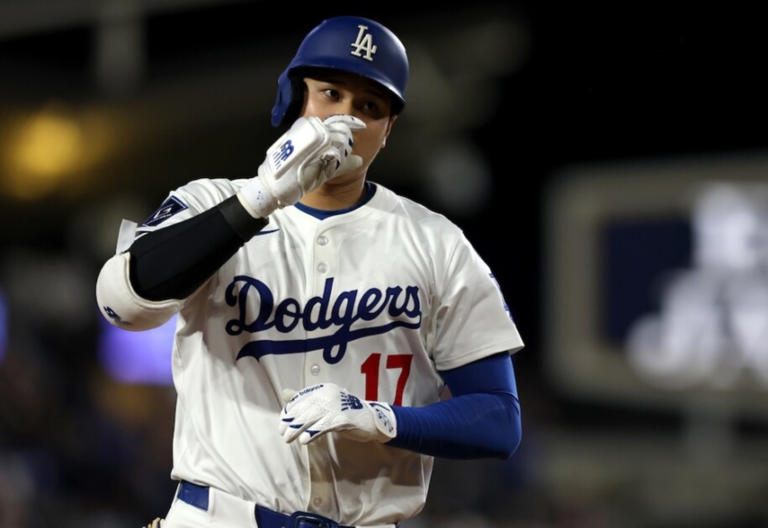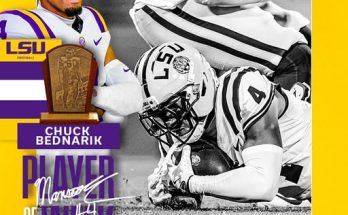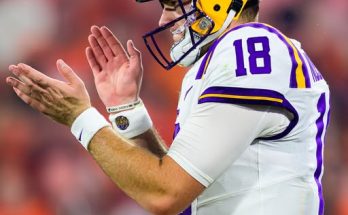Los Angeles Dodgers fans are used to winning. They’re used to dominance, superstardom, and consistently watching one of the most talented rosters in Major League Baseball take the field night after night. But even the most elite franchises experience moments that leave their fanbases shaken. That’s exactly what happened when the Dodgers dropped a bombshell piece of news just before their marquee matchup with the New York Yankees—Mookie Betts, the face of the franchise, the tone-setter, and arguably the most complete player in baseball, was out.
The timing couldn’t have been worse. Dodgers vs. Yankees. Hollywood vs. the Bronx. A matchup that oozes history, prestige, and television ratings. Fans circled this date months ago. The prospect of Mookie Betts squaring off against Aaron Judge and Juan Soto was the kind of narrative MLB dreams of. But instead, just hours before first pitch, word broke that Betts would not be in the lineup. The reason? Lingering soreness. Not a serious injury, according to the team. Just “precautionary.” But for Dodgers fans, that explanation didn’t fly.
Disappointment quickly turned to frustration. The Dodgers faithful took to social media, message boards, and sports talk radio to vent. They weren’t just upset that Betts was missing the game—they were furious that it came with virtually no warning, and against a team like the Yankees, no less. For many fans, this was a measuring-stick series, a chance to see how the Dodgers stack up against the powerhouse from the American League. Without Mookie, the whole vibe changed. Optimism turned to anxiety. Excitement turned to anger.
And it wasn’t just casual fans expressing their displeasure. Season ticket holders, diehards who’ve followed Betts since his arrival in 2020, felt blindsided. Some had traveled across the country for this series. Others had spent hundreds—if not thousands—on tickets, accommodations, and memorabilia. For them, Betts’ absence felt like a gut punch. One fan on X (formerly Twitter) posted a photo of his customized Betts jersey with the caption, “Flew 2,000 miles to see my guy. Can’t even get three ABs. Brutal.” Another wrote, “We only get a few of these Yankees games. And you rest Mookie? This better be more than just ‘precautionary.’”
Therein lies the issue. The Dodgers’ explanation—or lack thereof—only intensified the backlash. Manager Dave Roberts’ postgame comments didn’t help much. “It’s a long season. We’re just being smart with Mookie,” Roberts said. “He’s been feeling some soreness, and we thought it was best to give him a breather. He’ll be back soon.” But Roberts’ vague reassurances raised more questions than they answered. Is Betts battling something more serious than the team is letting on? Is this the beginning of a larger issue?
In the era of load management, where stars are strategically rested to preserve health for the postseason, fans are increasingly feeling shortchanged. And in most cases, they reluctantly accept it—when it happens on a Wednesday night against the Rockies in April. But not this. Not Yankees-Dodgers in prime time. Not the game that’s been hyped up since Spring Training. Dodgers fans don’t want to hear about long-term health when the most anticipated game of the month is on the line.
Some fans took it a step further, accusing the organization of disrespecting the magnitude of the moment. “They owe it to the fans,” one Reddit post read. “Mookie’s not just any player. He’s the leader of this team. If he’s even 75 percent, he needs to be out there. You don’t sit your captain against the Yankees. Period.” That sentiment echoed throughout the Dodgers community. People didn’t just want Betts on the field—they expected it. That expectation is part of the price that comes with superstardom and playing for a big-market team like Los Angeles. When fans invest time, money, and emotion, they want to see their stars rise to the occasion, not sit in the dugout with a hoodie and a smile.
Then there’s the broader context. The Dodgers have had an inconsistent stretch lately, plagued by bullpen struggles and offensive slumps. Mookie Betts has been one of the few constants—hitting well, defending at an elite level, and providing the leadership that’s helped the team stay atop the NL West. Taking him out of the equation—especially against a dangerous Yankees squad—felt like pulling the rug out from under an already-shaky foundation. And when the Dodgers fell behind early in the game, fans were quick to link the outcome to Betts’ absence. “Wouldn’t be down 4-0 if Mookie was out there,” one fan posted during the third inning. That kind of emotional reaction may not always be fair, but it’s undeniably real.
To be clear, Betts has earned the benefit of the doubt. He’s a consummate professional, a grinder, and not someone who takes himself out of the lineup lightly. If he wasn’t playing, there was probably a legitimate reason. But the problem wasn’t necessarily the decision—it was the optics. The buildup to Dodgers-Yankees was so intense, so media-saturated, that fans felt betrayed when their marquee attraction was a no-show. Whether intentional or not, the message sent to the fans was that this game didn’t matter as much as they thought it did.
The situation also highlights a growing disconnect between MLB organizations and their fanbases. While teams increasingly prioritize analytics, long-term planning, and cautious management of player health, fans still live in the moment. They want stars. They want drama. They want firepower. And when they don’t get it—especially without a clear explanation—they feel alienated. In an age where baseball is fighting to retain relevance, those moments of disconnect can be costly.
For now, all eyes will be on Betts’ status moving forward. If he returns within a game or two and looks like his usual self, perhaps the uproar will fade. But if this “soreness” turns into an extended absence, the narrative changes. Suddenly, it’s not just about one missed game—it’s about transparency, trust, and whether the team truly values its fanbase’s passion.
And make no mistake: that passion is fierce. Dodgers fans are among the most loyal in sports. They show up in droves. They travel. They support their stars unconditionally. But they also hold the organization to a high standard. That’s part of being a big-market club with championship aspirations. When something feels off—whether it’s a managerial decision, a front-office move, or a late scratch before a big game—the fans will let their voices be heard.
Mookie Betts will be back. He’ll take the field again, likely within days, and he’ll continue doing what he does best—making jaw-dropping plays, setting the tone in the leadoff spot, and playing the game with the grace and intensity that have made him a fan favorite. But the sting of his absence against the Yankees will linger for some. Not because they doubt his heart or his toughness—but because moments like these matter. Baseball is a marathon, yes. But it’s also a series of moments. And for Dodgers fans, this moment was supposed to be special. Instead, it felt like a missed opportunity.
Perhaps, in the grand scheme of things, it won’t matter. Maybe the Dodgers will win the series anyway. Maybe Betts will go on a tear and silence any remaining doubts. But on this night, with the lights bright and the expectations sky-high, the absence of Mookie Betts left a hole too large to ignore. It turned a showdown into a what-if. And for a fanbase that bleeds blue, that’s a bitter pill to swallow.



